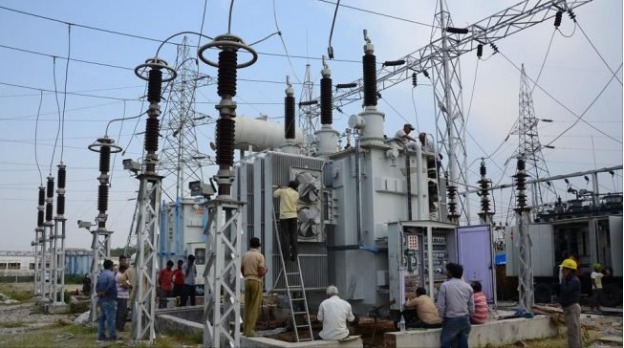The federal government said yesterday that it could not continue to shoulder the burden of paying subsidy in the country’s electricity sector, noting that it had paid over N1.5 trillion to subsidize the sector in the last four years.
Speaking on the second day of the Business Day Energy Series, tagged: ‘Harnessing Nigeria’s Energy Potential for the Future,’ Minister of Power, Mr. Sale Mamman, explained that the yearly quantum of under-recovery paid to the Distribution Companies (Discos) as subsidy was higher than the budget on health and education combined.
The minister in the keynote address, delivered on his behalf by his Special Adviser on Policy, Mr. Abbah Aliyu, insisted that the subsidy was for the rich, noting that the over 80 million Nigerians without power supply were being short-changed by wealthy Nigerians.
He said: “It’s pertinent to say that the federal government has paid over N1.5 trillion subsidising the power sector since 2015. This amounts to a monthly spending of N12 billion.
“This subsidy cost was also N165 billion in 2015 and suddenly it increased to N548 billion in 2019 and the performance of the Discos keeps fluctuating and if we continue with this subsidy payment, more payment will become crystallised as there will be more Disco retention due to the infrastructure challenges in the sector.
“If you look at the quantum of this subsidy, it’s higher than the budget of the ministries of education and health combined. How can we continue subsidising with this amount of money when we have all these challenges being faced in other sectors?”
The minister added that people enjoying the subsidy were the rich, noting that though the consumers are not averse to paying more, saying they have always insisted that service should be commensurate.
On metering, he said: “What the minister is doing is to develop a national metering policy that will provide an overarching direction to how metering should be administered in the country.
“Work has already begun and very soon the minister will come up with the national metering policy. There are also discussions around the service-based tariff introduced by the regulator.”
In his remarks, the Commissioner in charge of Legal, Licensing and Compliance, Nigerian Electricity Regulatory Commission (NERC), Mr. Dafe Akpeneye, said although the sector has not totally collapsed yet, the books of the power distributors are in the red.
He posited that the lack of liquidity in the sector was scaring investors, explaining that Discos’ collections, as currently obtains cannot pay for their obligations to the Transmission Company of Nigeria (TCN), Generation Companies (Gencos) and gas suppliers.
He said: “I wouldn’t describe the sector as being in a state of insolvency, so, we don’t have an insolvent sector. But we have a sector that is dealing with severe liquidity challenges.
“And the liquidity challenges stem from the fact that the downstream collections are not enough to satisfy the cascading upstream obligations.
“Meaning that what the Discos collect from customers is not enough to pay TCN for wheeling power, the Gencos for generating power and the gas providers, because most of our generation is thermal.
“And you now look at the payment that goes to the other service providers along the line. Now, why do we have this liquidity challenge with a mismatch of the downstream commitments matching upstream obligations?
“It simply stems from the fact that tariffs are not cost reflective and it has become a serious policy issue. At the time that we did privatisation, one of the key elements was that government would pay its bills and also allow the Discos to charge a cost-reflective tariff which allows the utility operate efficiently.”
He said that not allowing the power distributors do that had led to unsustainable interventions from the federal government.
He explained: “Government has had to intervene with different subsidies to address the issue. They have come in form of addressing Discos’ immediate losses under the NESP N213 billion funding. Then we also have the different Gencos’ assurance.
“The first was N702 billion and the next one was from CBN was another N600 billion because what the customer pays isn’t enough and someone is meeting the shortage.
“With regards to the issue of liquidity, we need to have a cost-reflective tariff like we did in September and now location based tariff which is the service-based regime which takes into cognisance current supply.
“The Discos’ now have their books in the red whereby they are carrying significant shortfalls in their books. The second leg is that we are looking at the government side to transfer the liabilities to another government agency to put everybody back into the black so that there will be significant interest in the sector.”
Source: THISDAY












